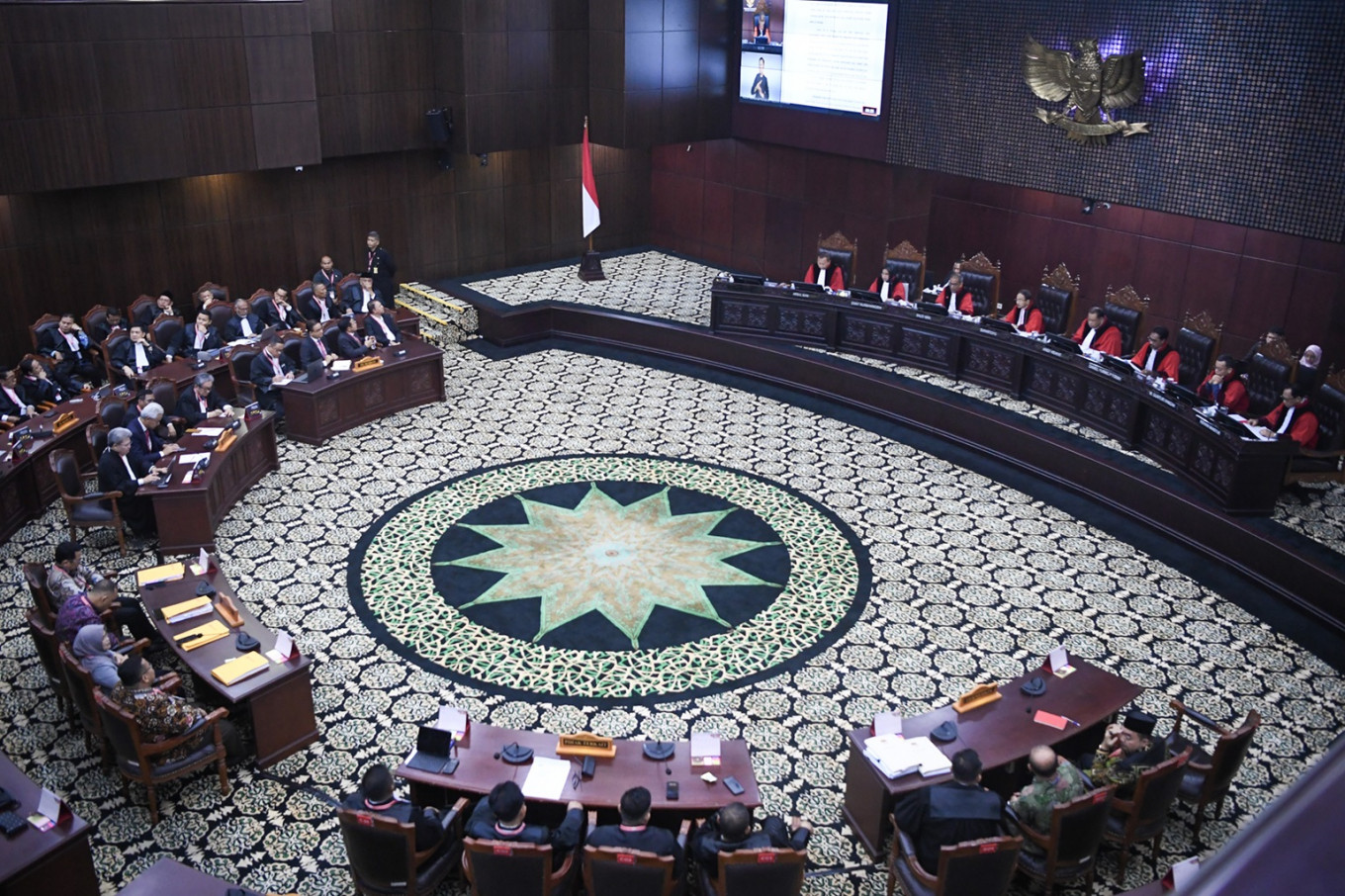Popular Reads
Top Results
Can't find what you're looking for?
View all search resultsPopular Reads
Top Results
Can't find what you're looking for?
View all search resultsKeeping the president’s powers in check through presidential institution law
A law on the presidential institution is needed to ensure whoever assumes the highest office upholds political ethics and morality.
Change text size
Gift Premium Articles
to Anyone
I
n his dissenting opinion when the Constitutional Court upheld on March 22 the electoral victory of Prabowo Subianto and his running mate Gibran Rakabuming Raka, Justice Arief Hidayat proposed that the country enact a law on the presidential institution that delineates the responsibilities and authorities of the president as head of state and head of government.
Justice Arief highlighted President Joko “Jokowi” Widodo’s overt support for Prabowo-Gibran, which would have not happened if the law was in place. Arief maintained that all branches of government, including the executive, should refrain from interfering and taking sides in elections.
Since then the discourse over the need for a presidential institution law has snowballed. Senior journalist Budiman Tanuredjo said on his YouTube channel "Beyond Headline" that such a law was essential to prevent the executive from abuse of power as in the case of President Jokowi’s cawe-cawe (interference) that contributed to the landslide victory of Prabowo and Gibran, the latter of whom is Jokowi’s eldest son.
The law must include provisions governing the behavior of the president and vice president to mitigate conflicts of interest. In addition, this law should also outline a strong mechanism for the transition of power to ensure continuity of policies and programs of former presidents.
In his article "Kepresidenan, Lembaga Tanpa Undang-Undang" (The presidency: An institution without laws) published in Kompas daily on March 21, Budiman delves into contemporary political developments, shedding light on the multifaceted role of the president. Apart from serving as head of state and government, an Indonesian president often assumes additional public roles, such as chairman of a political party.
The article sends a subtle yet crucial message regarding the significance of a law on the presidential institution in ensuring whoever is in the highest office upholds political ethics and morality.
Moreover, as the late constitutional law professor Sri Soemantri emphasized during the early years of Reform, the essence of a presidential institution law should be consistent with matters already outlined in the 1945 Constitution. Conversely, Albert Hasibuan advocated incorporating precise and objective criteria regarding the president into the draft law (Kompas, May 11, 2001).



















